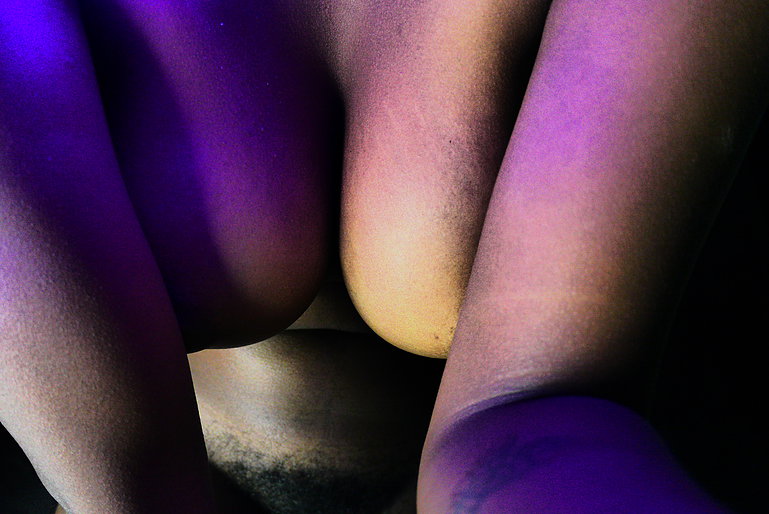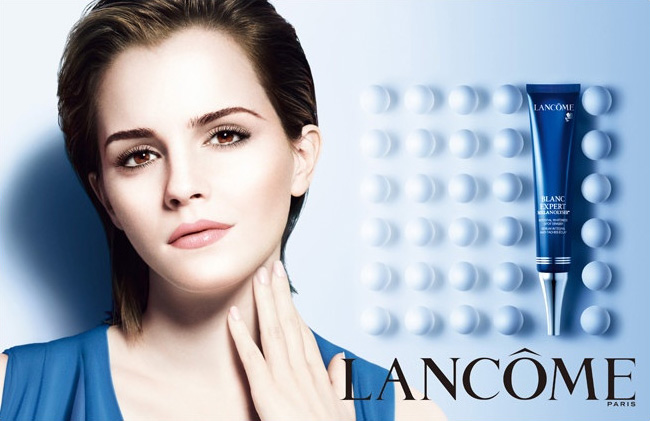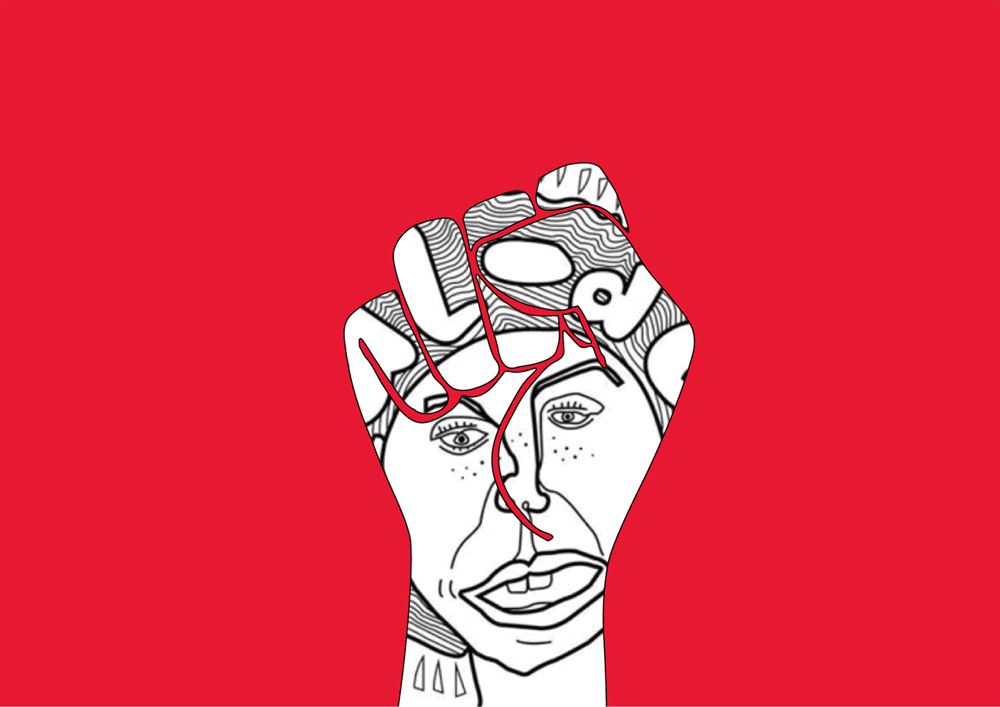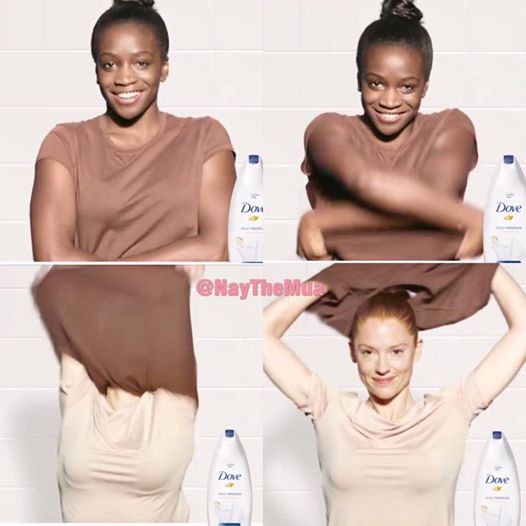
gal-dem is taking a stand against skin lightening. In the first of a range of content which explores the issue of skin lightening, Naomi Mabita explains why reputable European cosmetic companies don’t sell their skin-lightening products in the western world.
Of my 22 years of (black) life, I have spent 16 of them living in predominately white countries. There are many elements of advertising aimed at people of colour (PoC) that I have missed, but in a sense, that may have been a blessing when it comes to a practice that I have been sheltered from: skin bleaching.
Skin bleach is a thing. It’s an actual thing people put on their bodies. Before anybody comments on it being an equivalent to fake-tan, think about it this way – is chemically straightening your hair similar to flat ironing it?
Simply put, there are some PoC out there who smear themselves in products that contain dangerous substances like mercury and hydroquinone because they struggle to accept their natural skin tone.
While many of the products used are illegal, they are still sold at shops here in the UK and can cause huge damage to the skin and internal organs. In Nigeria, up to 77% of women have admitted to using skin bleach, while in Cote d’Ivoire, the problem got so out of control that skin bleaching products were banned last year.
Interestingly, there are several well known North American and European companies who sell skin-lightening products in predominately black and Asian markets, but do not market those same products to their domestic customers. They effectively code switch.
“There are several well known western companies who sell skin lightening products in predominately black and Asian markets, but do not market those same products to their domestic customers”
An example of this is the White Perfect range by L’Oréal Paris. If you go to their official European website, you will not find any of the products from their White Perfect range, yet a quick web search shows you all the different places you can get hold of them, including on the L’Oréal India website, eBay and Amazon. The only advertisements for these feature women of colour – including Sonam Kapoor (India), Martha Cristiana (Mexico), Fan Bingbing (China) and Dian Sastrowardoyo (Indonesia). They’re marketing “pearl perfect whiteness” to all except white women, and everyone consuming the brand is complicit.
Why is a French company advertising “perfect whiteness” to Indian and Chinese women? Why is melanin stunting being promoted as standard? It’s white supremacy at work, where those at the top of the chain make sure there is a clear divide between what they show white people and what they show people of colour – so they don’t have to answer uncomfortable questions.
L’Oréal still has not given me a response about their code switching via Facebook. “Typically replies within the hour” doesn’t apply when you’re highlighting the inherent racism of the world’s leading cosmetic brand, it seems. To add insult to injury, brands like this also cash in on appearing to be inclusive because they use models of different ethnic backgrounds – they do, as long as the models agree to endorse skin whitening.
If you want to see these harmful narratives in action, look up Pond’s skin-lightening ad campaign aired in India. It’s just one cringe-worthy depiction of colourism after the next. Other familiar brands that code switch or contain potentially harmful skin-lightening chemicals? Clinique, Maybelline, Avon, Neutrogena, Olay, and Estée Lauder.
Do an image search of ad campaigns and you’ll quickly out find how widespread this practice of equating facial perfection to “whiteness” is. Emma Watson, forever paraded in the media as a white feminist icon, is the face of Lancôme’s “Blanc Expert” (Expert White) which contains disruptive ingredients intended to whiten the skin.
Non-white women already have complexes about dark skin rooted in colonialism, racism and/or classism. They are exacerbated by these multimillion $ £ € campaigns designed to make us feel like our skin is a problem that we can pay for them to solve. We already have a myriad of products manufactured purely for the purpose of skin lightening, including Dencia’s notorious “Whitenicious”, and Glutamax tablets. But some dark women against this aren’t just sitting back watching it unfold.
In India we have Women of Worth’s Dark is Beautiful “UNfair” campaign. In Ghana, actress and TV presenter Ama K Abebrese sponsored the campaign “Say NO to Bleaching”, alongside Pauline Oduro, Nana Ama McBrown and Hamamat.
In the same country, Mrs Amey-Obeng started the FC Group of beauty industry companies over 30 years ago and they are still going strong, leading in beauty therapy training and cosmetics that celebrate natural beauty. Dr May Ikora, a Nigerian ex-Beauty Queen has launched an anti-bleaching range of skin products called “L’Avyanna”. South African actress Brenda Mhlongo (internationally known for her portrayal of Rafiki in The Lion King on Broadway) has spoken up against the practice of skin bleaching. Women are and have been clapping back, it’s just been hard to pick up on by people unaware of this code switch. So what can we do to help?
We can stop giving them money, and add to that clap back. Boycott them, clog their Facebook inboxes and Twitter feeds demanding they explain this code switch and the need for skin lightening cosmetics in the first place.
“What can we do? We can stop giving them money and add to that clap back. Boycott them, clog their Facebook inboxes and Twitter feeds demanding they explain this code switch and the need for skin lightening cosmetics in the first place.”
Spread the info, start petitions to get these products removed from the shelves. Demand better representation in the mainstream media; the more positive images of dark-skinned women we put out there for the world to see, the less room there will be in our lives for manufactured shame. Join ongoing campaigns and make sure we keep this conversation going.
Get involved with gal-dem’s skin lightening series. Comment, tweet us at @galdemzine using the hashtag #skinlighteningseries, or email info@gal-dem.com if you would like to share your experience.










